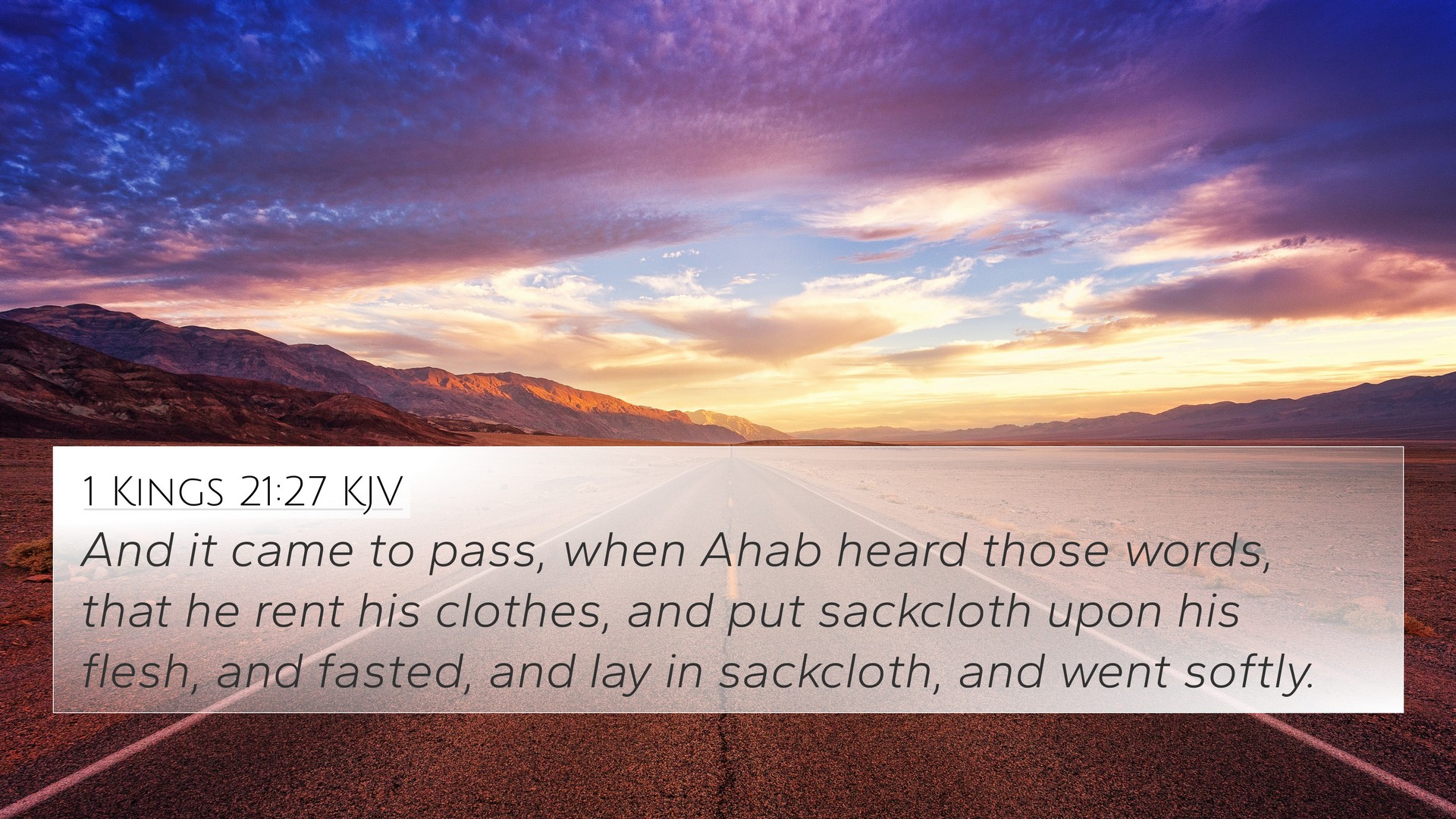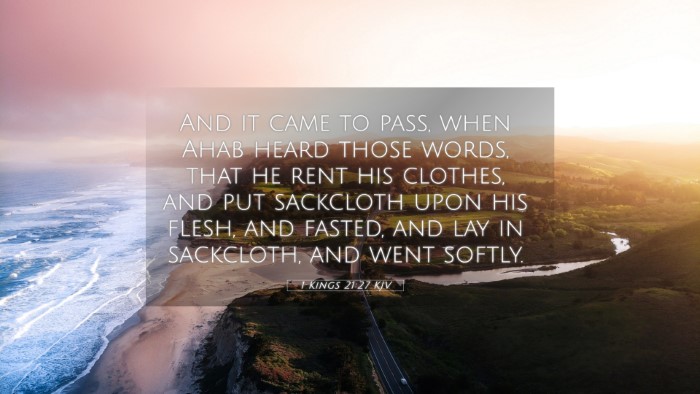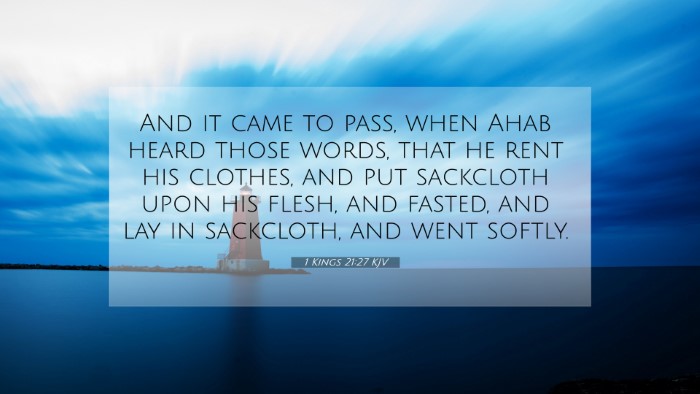This section features a detailed cross-reference designed to enrich your understanding of the Scriptures.
Below, you will find carefully selected verses that echo the themes and teachings related to 1 Kings 21:27 KJV. Click on any image to explore detailed analyses of related Bible verses and uncover deeper theological insights.
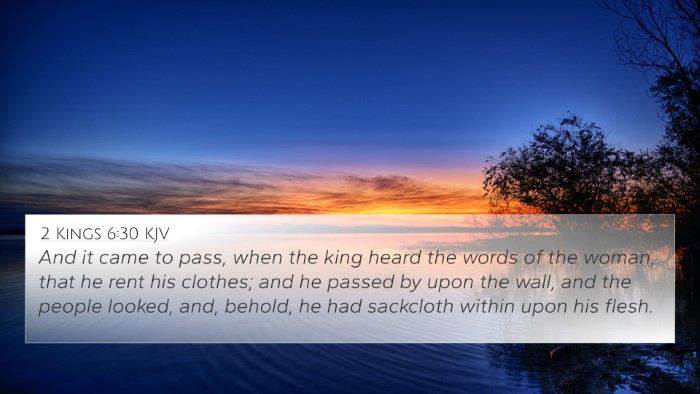 2 Kings 6:30 (KJV) »
2 Kings 6:30 (KJV) »
And it came to pass, when the king heard the words of the woman, that he rent his clothes; and he passed by upon the wall, and the people looked, and, behold, he had sackcloth within upon his flesh.
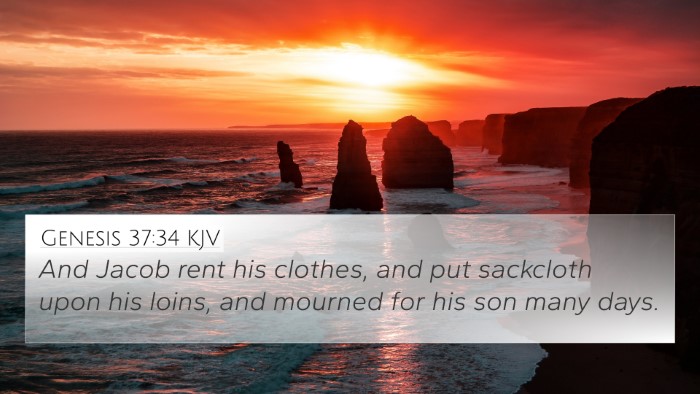 Genesis 37:34 (KJV) »
Genesis 37:34 (KJV) »
And Jacob rent his clothes, and put sackcloth upon his loins, and mourned for his son many days.
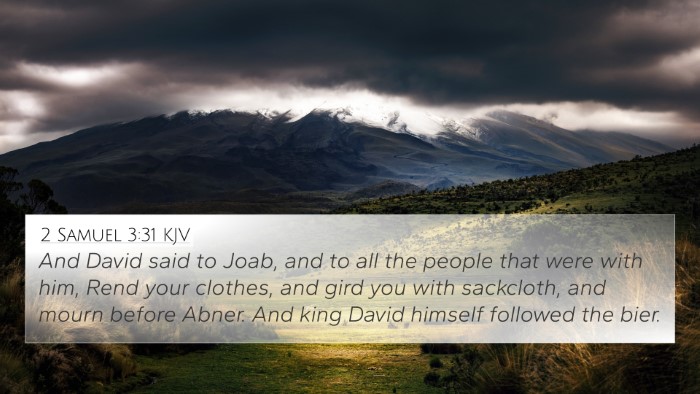 2 Samuel 3:31 (KJV) »
2 Samuel 3:31 (KJV) »
And David said to Joab, and to all the people that were with him, Rend your clothes, and gird you with sackcloth, and mourn before Abner. And king David himself followed the bier.
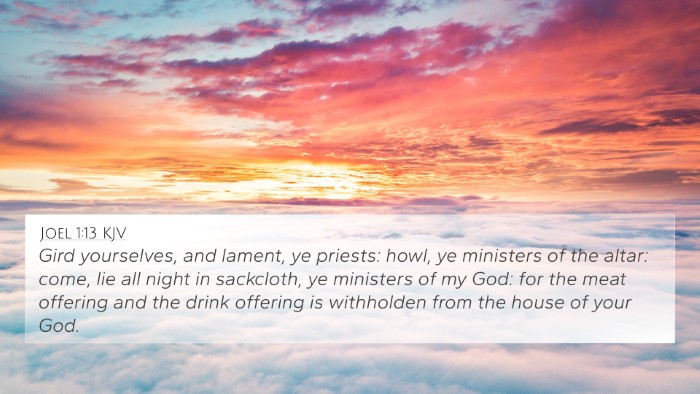 Joel 1:13 (KJV) »
Joel 1:13 (KJV) »
Gird yourselves, and lament, ye priests: howl, ye ministers of the altar: come, lie all night in sackcloth, ye ministers of my God: for the meat offering and the drink offering is withholden from the house of your God.
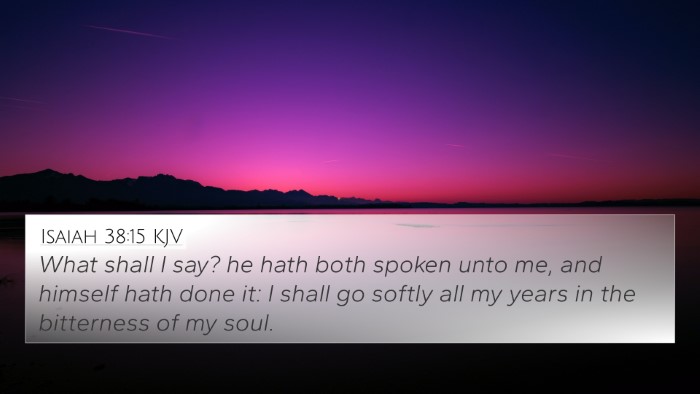 Isaiah 38:15 (KJV) »
Isaiah 38:15 (KJV) »
What shall I say? he hath both spoken unto me, and himself hath done it: I shall go softly all my years in the bitterness of my soul.
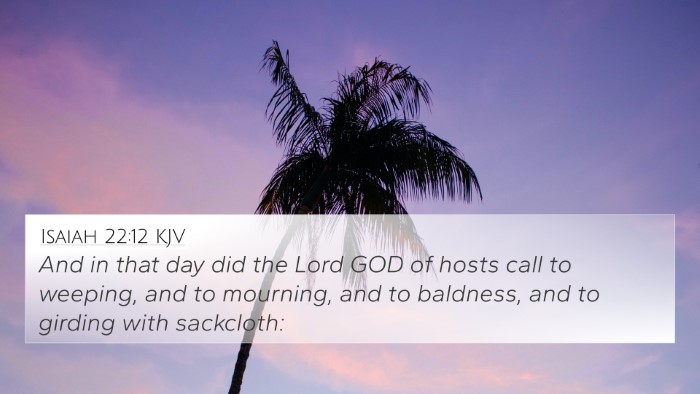 Isaiah 22:12 (KJV) »
Isaiah 22:12 (KJV) »
And in that day did the Lord GOD of hosts call to weeping, and to mourning, and to baldness, and to girding with sackcloth:
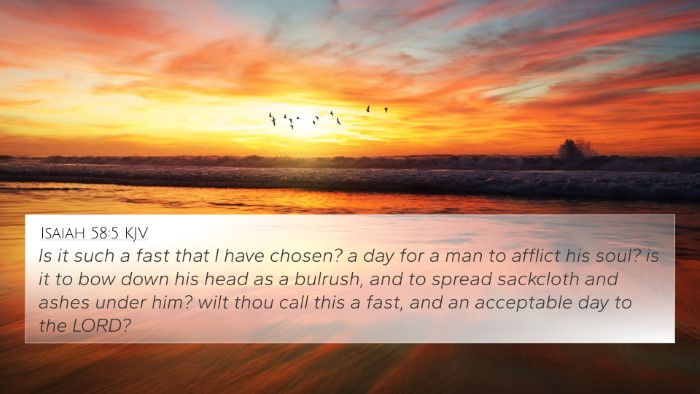 Isaiah 58:5 (KJV) »
Isaiah 58:5 (KJV) »
Is it such a fast that I have chosen? a day for a man to afflict his soul? is it to bow down his head as a bulrush, and to spread sackcloth and ashes under him? wilt thou call this a fast, and an acceptable day to the LORD?
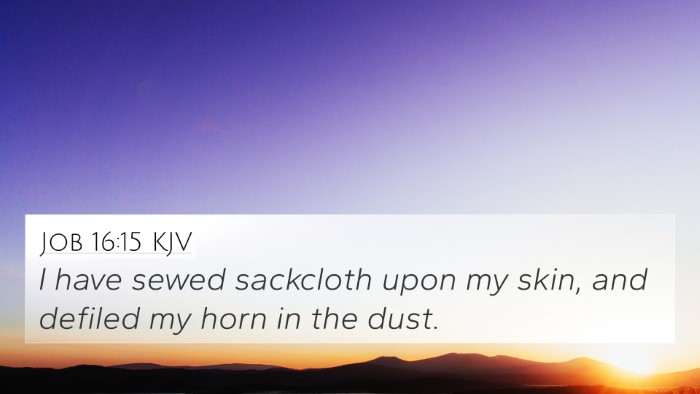 Job 16:15 (KJV) »
Job 16:15 (KJV) »
I have sewed sackcloth upon my skin, and defiled my horn in the dust.
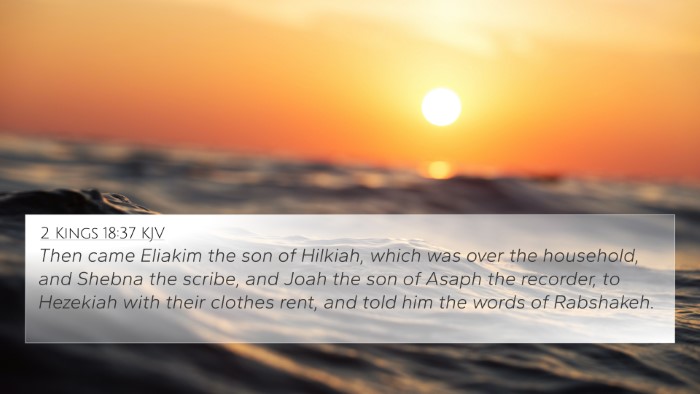 2 Kings 18:37 (KJV) »
2 Kings 18:37 (KJV) »
Then came Eliakim the son of Hilkiah, which was over the household, and Shebna the scribe, and Joah the son of Asaph the recorder, to Hezekiah with their clothes rent, and told him the words of Rabshakeh.
 2 Samuel 12:16 (KJV) »
2 Samuel 12:16 (KJV) »
David therefore besought God for the child; and David fasted, and went in, and lay all night upon the earth.
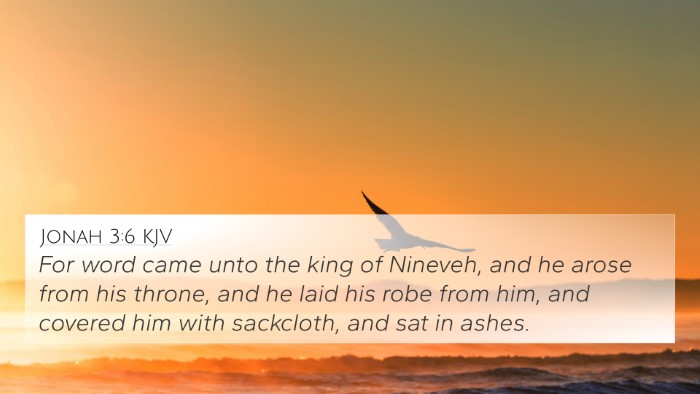 Jonah 3:6 (KJV) »
Jonah 3:6 (KJV) »
For word came unto the king of Nineveh, and he arose from his throne, and he laid his robe from him, and covered him with sackcloth, and sat in ashes.
